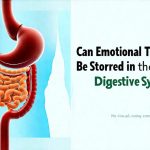Emotional landscapes are complex terrains, often triggering physiological responses we don’t fully understand. Many individuals experience physical manifestations during periods of intense emotional processing – from racing hearts and sweaty palms to changes in digestive function. One surprisingly common, yet rarely discussed symptom is a change in bowel habits, specifically loose stools or even diarrhea. This isn’t necessarily an indication of illness; instead, it frequently represents the body’s natural reaction to navigating challenging emotions like grief, anxiety, stress, or trauma. It’s important to recognize this as a normal physiological response and not something to be ashamed of, but understanding why it happens can empower us to better cope with these experiences.
The gut-brain connection is now widely acknowledged by researchers, highlighting the intimate relationship between our digestive system and our emotional state. This bidirectional communication pathway means that what affects one influences the other profoundly. When we experience strong emotions, the nervous system goes into overdrive, impacting various bodily functions including digestion. The release of stress hormones like cortisol can directly affect gut motility (the speed at which food moves through the digestive tract) and intestinal permeability (“leaky gut”), leading to changes in bowel habits. This is a completely natural response designed to prioritize energy allocation – when facing perceived threat or emotional upheaval, the body often redirects resources away from non-essential functions like digestion toward more immediate survival needs.
The Gut-Brain Axis and Emotional Regulation
The gut isn’t just passively reacting to emotions; it’s actively involved in their regulation. This is largely due to the microbiome – the trillions of bacteria, fungi, viruses and other microorganisms that live in our digestive tract. These microbes influence neurotransmitter production (like serotonin, often called the “happy hormone”), immune function, and even brain activity. – A healthy gut microbiome can buffer against stress and anxiety, promoting emotional resilience. – Conversely, an imbalance in gut flora (dysbiosis) has been linked to increased anxiety, depression, and other mood disorders. Emotional processing periods can disrupt this delicate balance, leading to changes in the microbiome that further exacerbate symptoms. This creates a feedback loop where emotional distress impacts gut health, which then amplifies emotional distress.
This complex interplay explains why some individuals experience significant digestive upset during times of emotional stress. It’s not simply “nerves” causing a loose bowel movement; it’s a sophisticated physiological response orchestrated by the brain and gut working in tandem. Furthermore, the vagus nerve – often referred to as the “wandering nerve” – plays a crucial role in this communication. This cranial nerve directly connects the gut to the brain, transmitting signals in both directions. Stress hormones can affect vagal tone (the activity of the vagus nerve), influencing digestive function and emotional regulation. Essentially, a stressed mind often leads to a stressed gut, and vice versa.
Understanding this connection allows us to approach loose stools during emotional processing not as an inconvenience or illness, but as a signal that our bodies are working hard to cope with challenging circumstances. It’s a reminder that self-care isn’t just about mental health strategies; it also involves nurturing our gut health through diet, stress management techniques, and mindful practices. Considering meal adjustments can be beneficial during these times.
Identifying Triggers and Patterns
Pinpointing the specific emotional triggers that lead to loose stools can be incredibly helpful in managing this symptom. This requires some degree of self-awareness and potentially journaling or tracking your experiences over time. Consider these questions: – What emotions tend to precede changes in bowel habits? (e.g., anxiety, grief, anger, fear) – Are there specific situations or events that consistently trigger digestive upset? (e.g., conflict with a loved one, work deadlines, public speaking) – How does the timing of the loose stools relate to emotional processing? (e.g., immediately after a stressful event, during periods of rumination, before sleep)
Tracking these patterns can reveal valuable insights into your personal triggers and coping mechanisms. For example, you might discover that social anxiety consistently leads to digestive upset, or that grieving a loss causes temporary changes in bowel habits. Once you’ve identified these triggers, you can proactively implement strategies to manage them. This might involve avoiding stressful situations when possible, practicing relaxation techniques before challenging events, or seeking support from friends, family, or a therapist. Recognizing the link between emotions and digestion is the first step towards regaining control. If stress seems to be a major factor, exploring how to keep reflux in check might also provide relief.
It’s also important to differentiate between emotional loose stools and other potential causes of diarrhea, such as food poisoning, infections, or underlying medical conditions. If your symptoms are severe, persistent, or accompanied by other concerning signs (e.g., fever, blood in stool, dehydration), it’s essential to consult a healthcare professional to rule out any underlying health issues. Checkpoints to watch can help you determine when medical attention is needed.
The Role of Stress Management Techniques
Since stress is often a significant contributor to emotional processing and subsequent digestive upset, incorporating effective stress management techniques into your routine can be highly beneficial. There are numerous strategies available, ranging from simple mindfulness exercises to more comprehensive therapies: – Deep breathing exercises: These help activate the parasympathetic nervous system (the “rest and digest” response), counteracting the effects of stress hormones. – Mindfulness meditation: Practicing present moment awareness can reduce rumination and anxiety, promoting emotional regulation. – Progressive muscle relaxation: This technique involves systematically tensing and relaxing different muscle groups to release physical tension. – Yoga and Tai Chi: These mind-body practices combine physical movement with mindful breathing, promoting both physical and emotional well-being.
Beyond these individual techniques, consider incorporating lifestyle changes that reduce overall stress levels. This might involve setting boundaries in your relationships, prioritizing self-care activities (e.g., spending time in nature, engaging in hobbies), or seeking support from a therapist or counselor. Stress management is not about eliminating stress entirely; it’s about developing healthy coping mechanisms to navigate challenging situations. It’s crucial to find techniques that resonate with you and integrate them into your daily routine. Consistency is key – even short bursts of mindfulness or relaxation can make a significant difference in managing emotional distress and its associated digestive symptoms. Supporting emotional safety is also paramount during these times.
Supporting Gut Health During Emotional Times
Nurturing your gut health can play a vital role in mitigating the impact of emotional processing on bowel habits. Diet, probiotics, and prebiotics are all important components of a gut-friendly approach: 1. Dietary adjustments: Reduce processed foods, sugary drinks, and excessive caffeine or alcohol consumption, as these can disrupt gut flora and exacerbate symptoms. Focus on incorporating whole foods rich in fiber (fruits, vegetables, whole grains) and fermented foods (yogurt, kefir, sauerkraut), which support a healthy microbiome. 2. Probiotic supplementation: Consider adding a probiotic supplement to your diet, but it’s essential to choose a high-quality product with diverse strains of beneficial bacteria. Consult with a healthcare professional before starting any new supplements. 3. Prebiotic foods: Prebiotics are the food source for probiotics, helping them thrive in the gut. Include prebiotic-rich foods like onions, garlic, bananas, and oats in your diet.
Hydration is also crucial – drinking plenty of water helps maintain healthy bowel function and prevents dehydration, which can worsen digestive symptoms. Furthermore, mindful eating practices can improve digestion and reduce stress. Pay attention to your body’s signals of hunger and fullness, chew your food thoroughly, and eat in a relaxed environment. A healthy gut is not just about what you eat; it’s also about how you eat. By prioritizing gut health alongside emotional processing strategies, you can create a more resilient system capable of navigating challenging times with greater ease. Digestive habits are essential even when not traveling; establishing good routines supports overall gut health. Finally, consider gut checks to proactively monitor your digestive wellbeing.


















